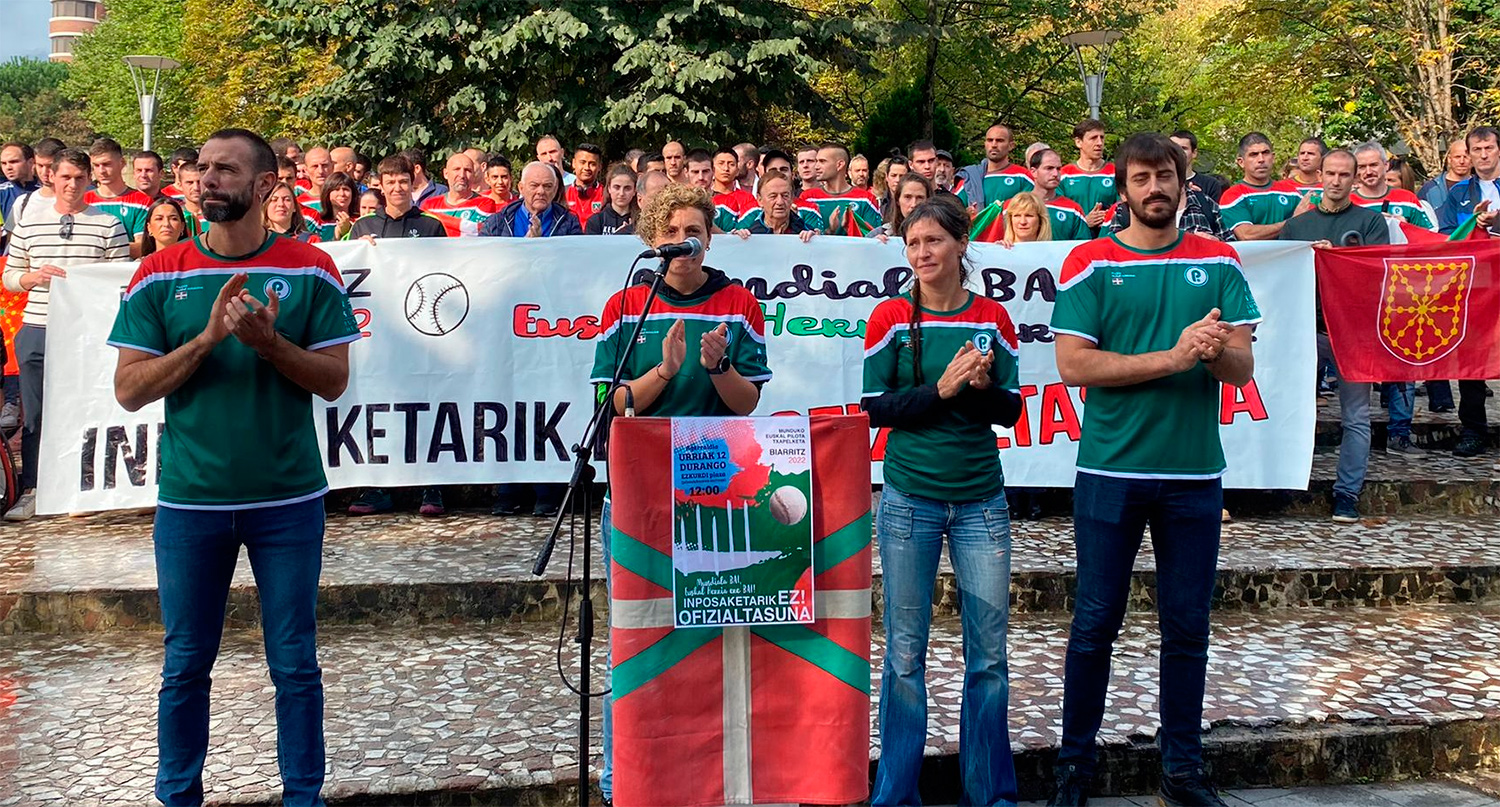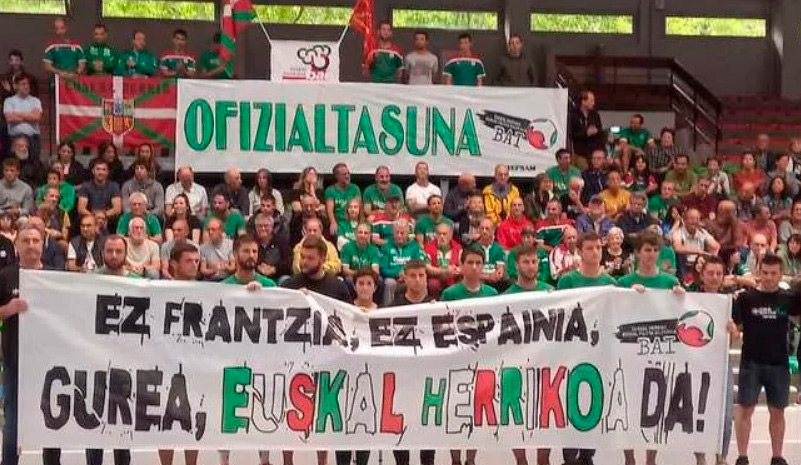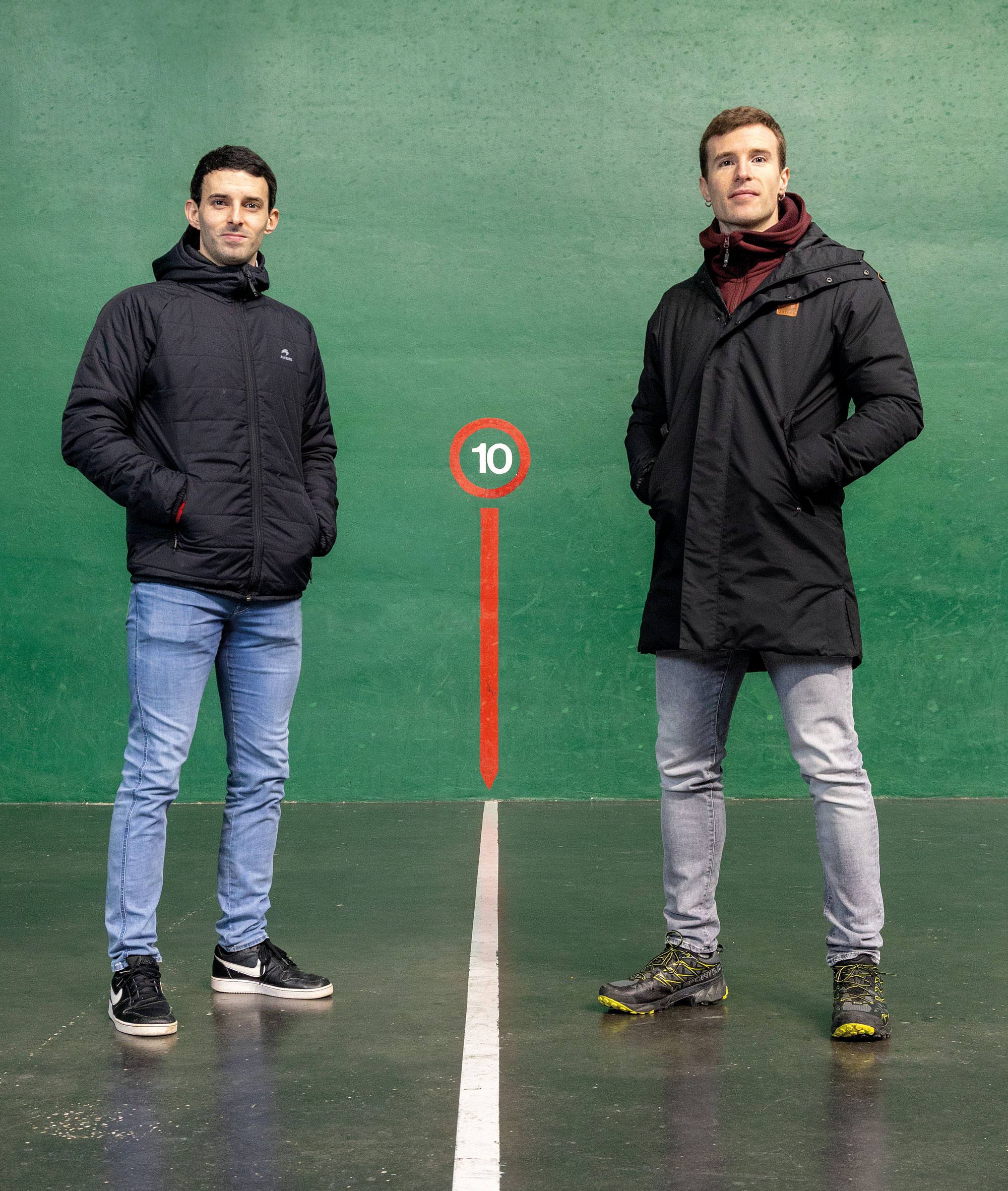Renewal of the clearing, at the disposal of young people
- Just take a look at the picture of the remontists to see that the remonte is getting younger. In fact, half of the professionals do not exceed 25 years. Among them are Josetxo Ezkurra, Endika Urrutia, Endika Barrenetxea, Ander Goikoetxea, Imanol Ansa and Ibai Martirena, who have participated in the tertulia of the Galarreta fronton, breeding nest. They have told us about the peculiarities of this sport, about the change of philosophy caused by the crisis and about the difficulties in attracting people.
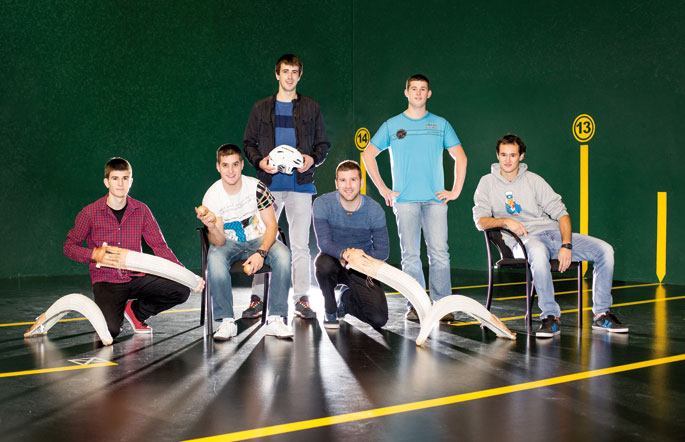
The rise of the 1980s and 1990s has been a long way from midnight. At a distance the madness of full fronts and constant wagering. The new century began with symptoms of decay, but there was still prosperity among the remontists. Many pelotaris only lived on the rails, and not in any way. However, the economic crisis ended all of that. Since wagering was no longer business, the remonte lost all viability. Over the years the situation worsened and in 2010 it was about to disappear, when the management company Euskal Jai-Galarreta closed its doors to the public. The witness was taken by Oriamendi 2010, but five years later, the remonte remains in a tight port. A difficult but hopeful situation, as a few years ago. In fact, a new generation has entered the clearing, which, in addition to rejuvenating sport, has brought about winds of change.
These young people do not know the luxury before the crisis and have become professionals when the revolt was already in a very delicate situation. Therefore, as they have started playing, they have acquired values such as love for sport, humility inside and outside the court… They have learned a critical philosophy with the forms of the past that, according to the sextet with which we have participated in Galarreta, gives them a “plus” as a pelotari. The uplift has therefore begun to be reformed, and as young people believe that change will become a reality in the future, it will be in their hands: “When things go up again, it will be our responsibility to convey the values that we have now internalized. Otherwise, what has now been achieved will be of no use.”
The first condition for transmission is to have whom to send those values. And it seems that the situation of the quarry at the moment is not the best, as many young people have jumped to the professionals, since the level of amateurs, the only one below the professionals, is in a state of impasse. On the contrary, young remontists believe that the situation is not alarming: “It is true that now, especially in Gipuzkoa, the amateurs have been quite hanging, but looking back you realize that something similar has always happened. The remonte goes in phases: when the young debuted, a gap is created in the hobbies”.
There are still things to change
Now, therefore, the challenge is to attract new people. How? For the sextet, this question has an easy answer: to bring young people to the front. “Once you’ve seen a live match, people get fascinated. Don’t say anything if you teach the inside of the pediment and let your cart dress.” However, they are aware that the clearing has many natural obstacles. For example, because of its special characteristics, it is not good for the body to start before age 16. Therefore, finding young people who want to play the mountain is “hard work”, since at that age most young people are already immersed in another sport. “In addition, the uplift at the beginning is a very difficult sport, and that also puts people behind. Giving a ball is easy, but controlling the joke…”.
However, not all obstacles are innate: the perspective of the pelotaris on the rails also harms promotion. In fact, as explained by the six young remontists, playing the remonte is not understood if it is not to reach professionals. This has two consequences, both negative: that the clearing is not attractive to young people and that the pelotaris that remain in the amateur suffer frustration, to the extent that many of them end up leaving it. “This behavior comes from the past. Because many things have changed in recent times, this mindset is still rooted in all the Pelotaris. If we want to reform the clearing, we also have to change: as we get to the clearing, we have to teach young people to play for a hobby, not a desire to become professionals.”
Sport “marginalised”
When talking about the promotion of the upland, it is also essential to mention the work of the upland schools. Most remontists come from localities where there are schools (Doneztebe, Hernani, Azpeitia…) or from the nearby environment, demonstrating their effectiveness. The young people are clear: by opening more schools the remonte would rise in “all senses.” However, things are not as easy as “the company has no money to make such investments.” Thus, they regretted the lack of involvement of the federation: “The responsibility for creating schools in almost all sports lies with the federation and not with the company. The Federation has the remonte completely ruled out.”
Television, the main media showcase, can also have much to say in the broadcasting of the clearing. On the contrary, they have denounced that in this case they are also discarded, as ETB merely looks at the ball by hand. They are currently planning to offer 14 functions per year in ETB4, but they are clear that this is not good for many things: “What channel do ETB4 people have? In addition, the parties are broadcast in the worst hours. For example, when ETB1 is giving Gol’s party.” As a solution, they propose that matches be broadcast on ETB1 on Fridays, before the ball matches by hand.
And “unparalleled”
Despite the obstacles, it is clear to the sextet that crossing the arms and protesting serves “little.” They claim an active attitude: “It’s in our hands to encourage friends and close friends to approach the fronton.” But why do they have to choose the railing before much more media sports? For, according to the young people, because the mountain is “unique”, “special”: “Few sports have the speed that the mountain has. In this sense, it is a spectacular sport, much more intense than the ball by hand. It's amazing to see how taking advantage of kinetics can give a huge vitality to the ball. And the best thing to realize is to come to the fronton and see the fence.”
The achievement of the Euskadi Selection has undoubtedly been a historic achievement. But if you stick to that, for many Basques – I too, because I am Navarro – it will be the darkest and saddest day. After enjoying the joy and warmth of the first few days, let's go back to... [+]
After so many years of struggle for it, 34 years, precisely, we are very pleased with the decision taken a few days ago, on 28 December, Innocent Day, in Pamplona, at the assembly organized by the International Federation of Basque Ball. Well, from now on we will have the... [+]
I had bought it for some time and read it above, but I have only recently been able to attend with the attention I wanted to the book Joxemari Iriondo Pilota eta Bertsoak. I have found old acquaintances and I have been raised with some of the struggles, lost and winnings that... [+]









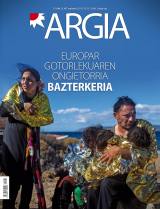

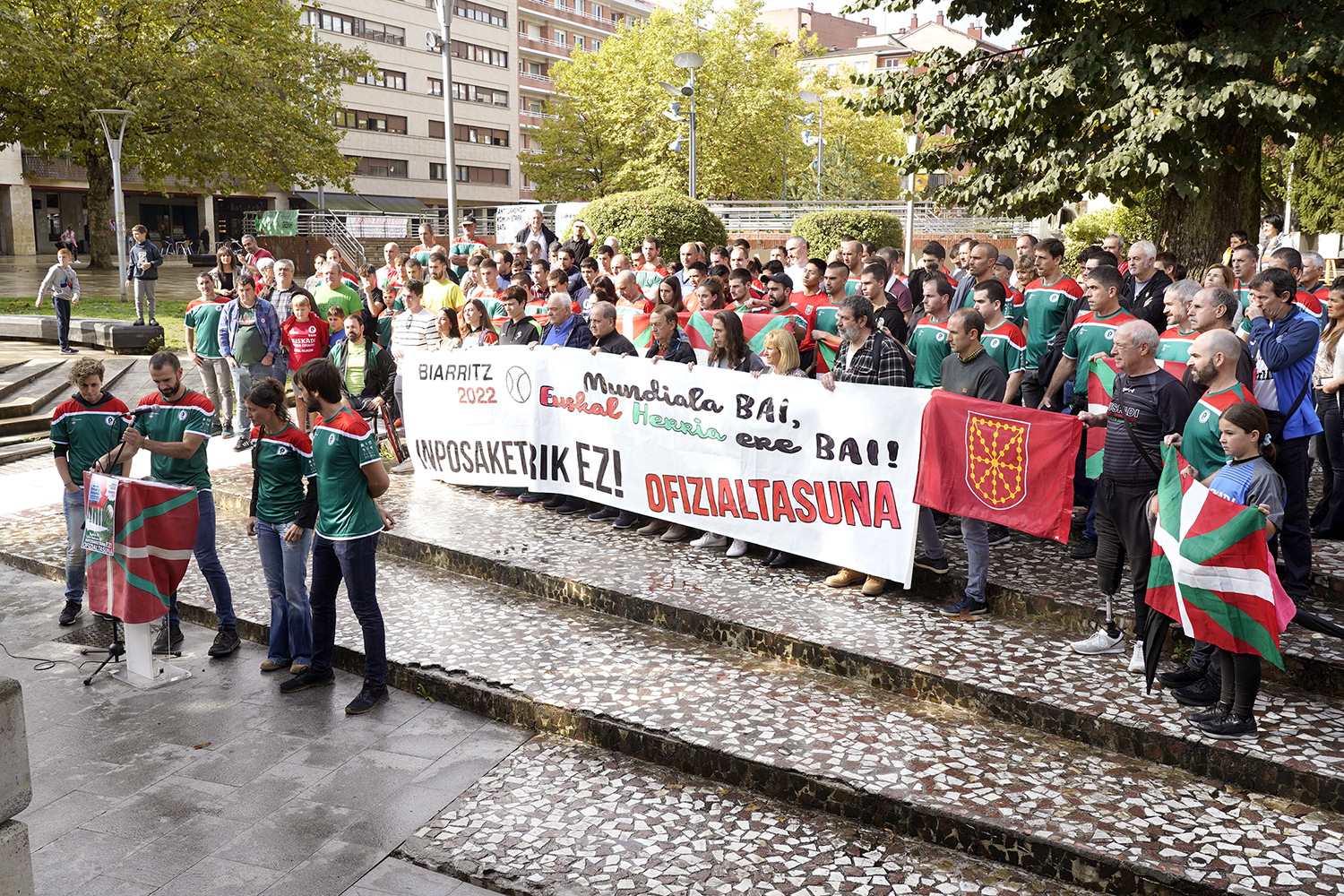
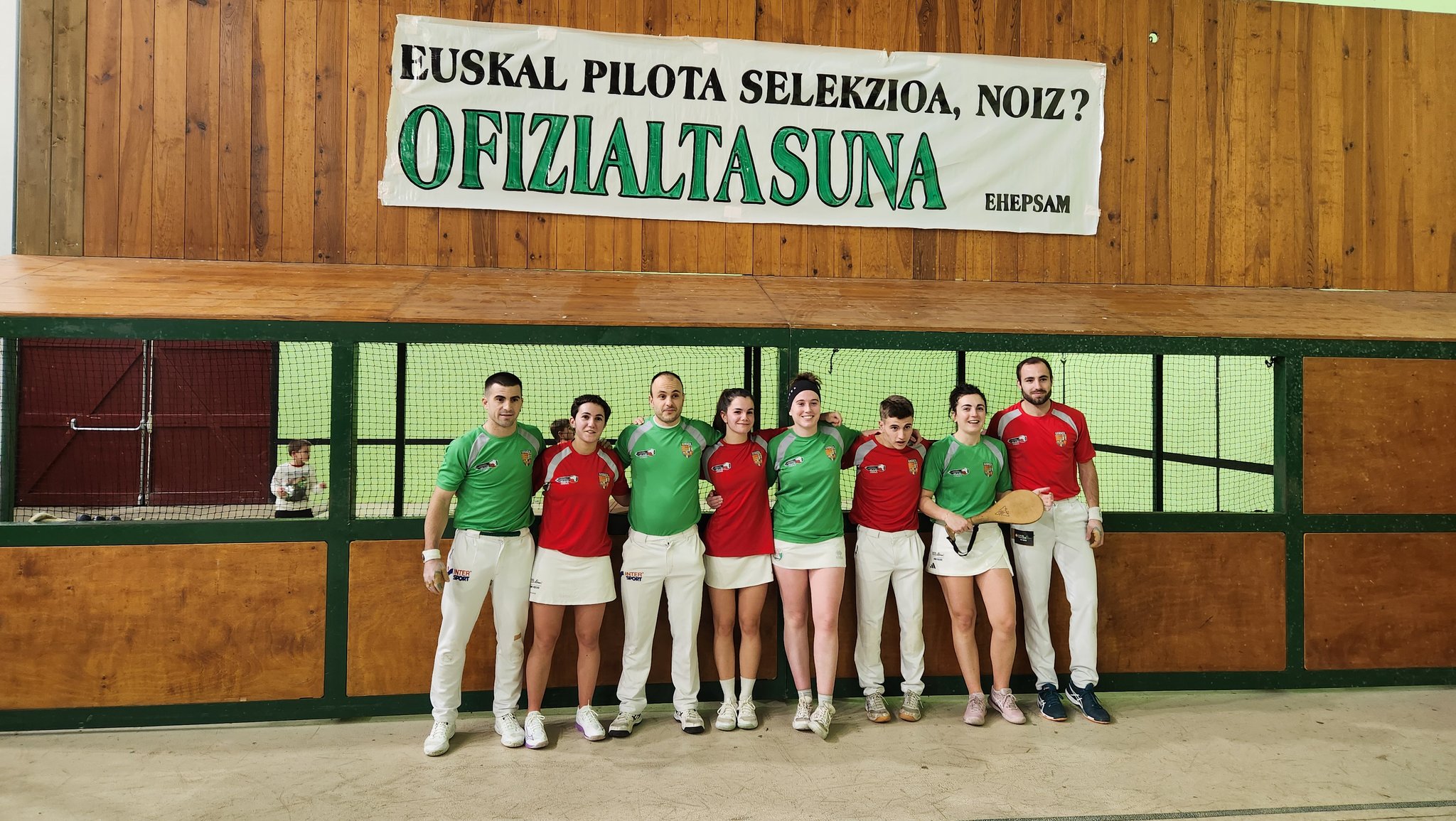
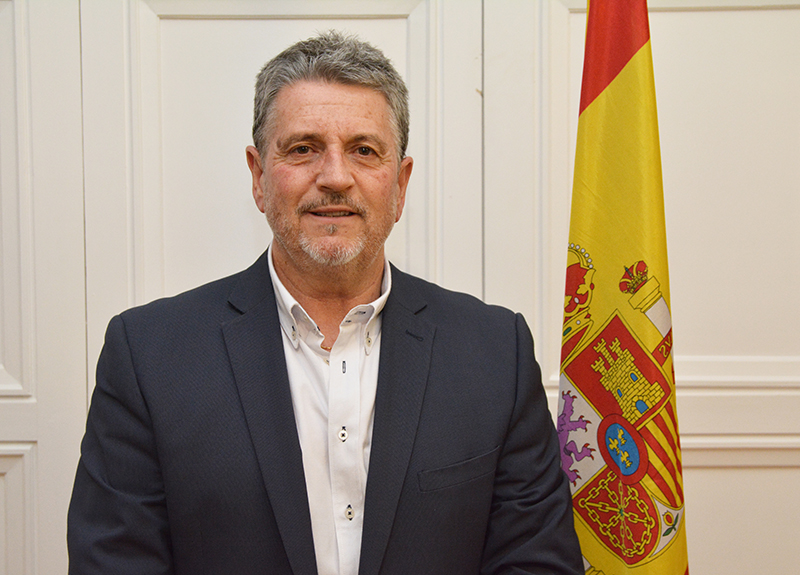
.jpg)
